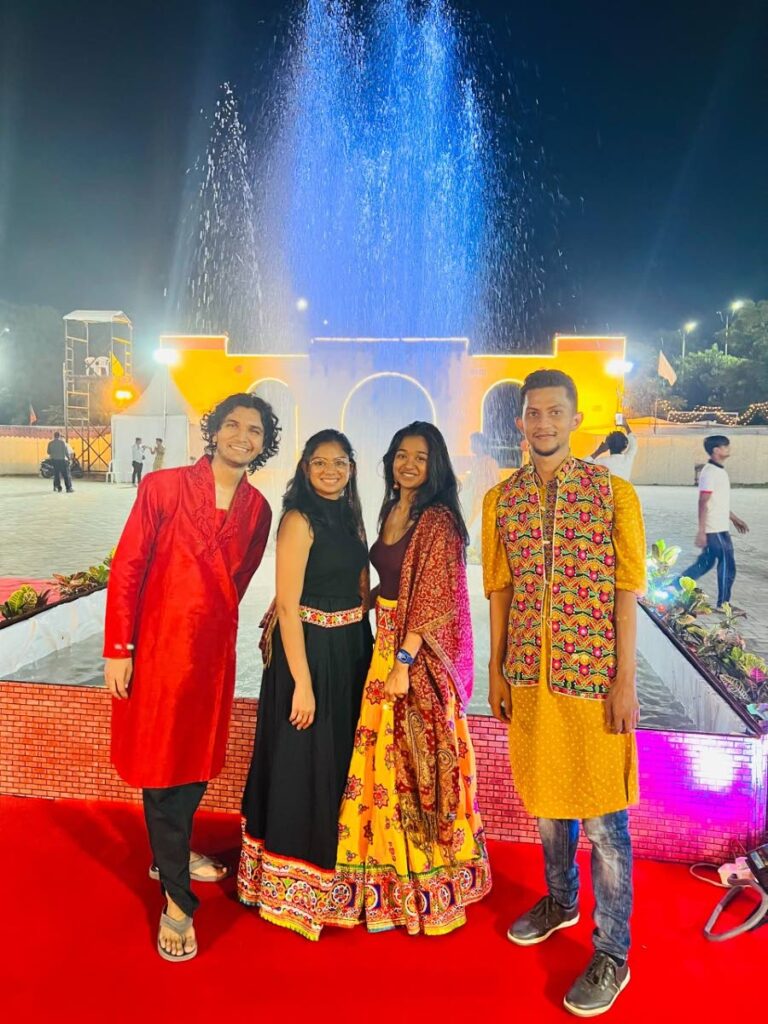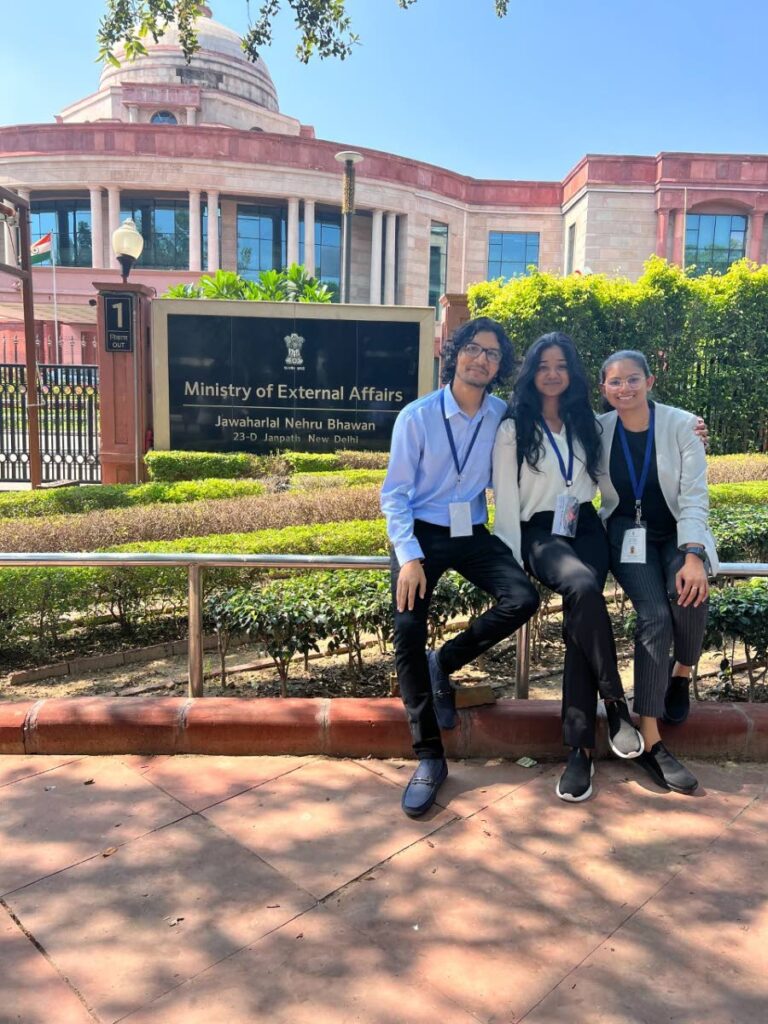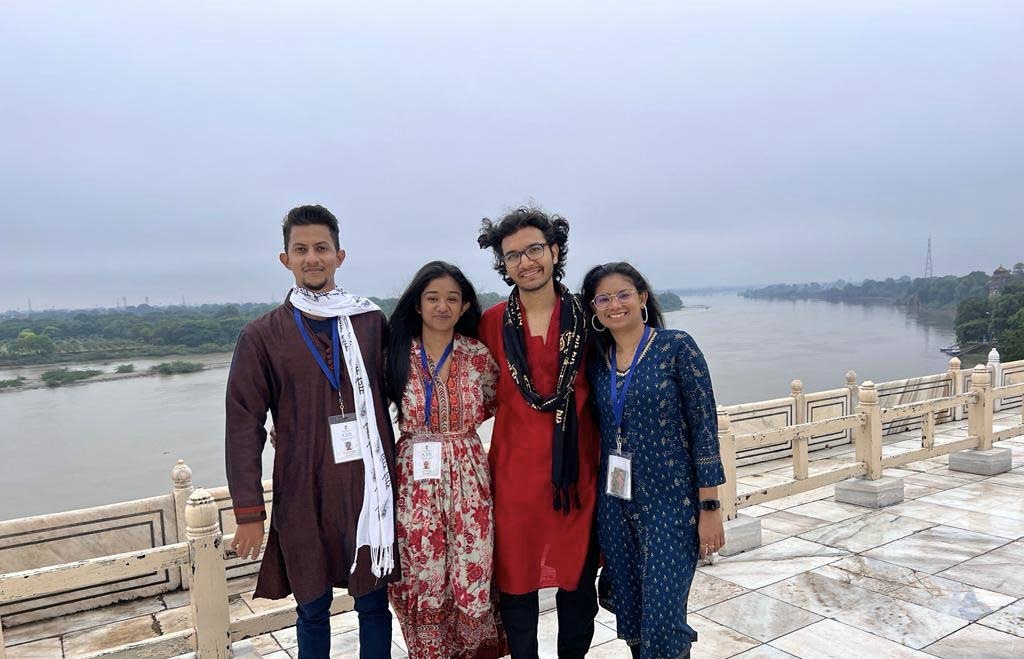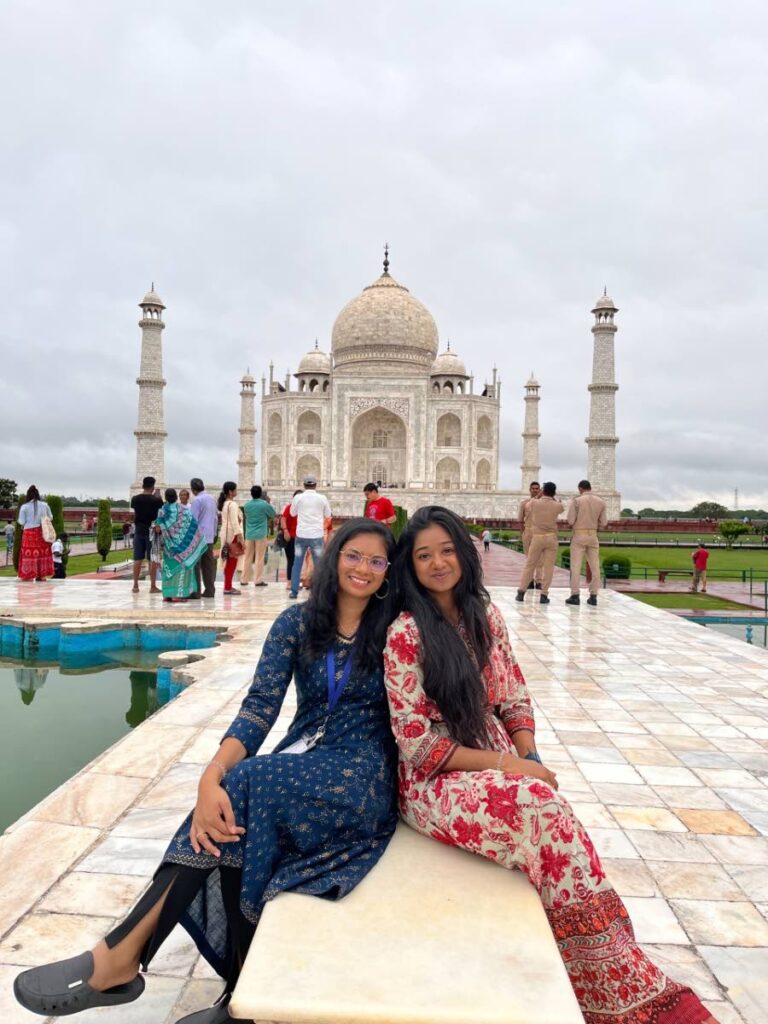India through the eyes of four Trinidadians

Four Trinidadians got an eye-opening experience after touring historic landmarks of India as part of the Indian High Commission's Know India Programme (KIP).
University graduates Nirmal Maharaj, sisters Karishma and Nandini Lal and University of TT student Latiff Nabbie attended the 61st edition of the programme where they were hosted for 21 days – September 26 to October 16.
The Indian High Commission hosts tours for at least three people each from TT, Guyana, Suriname, South Africa, Fiji, Mauritius and Myanmar to various states, three times a year.
Each year, the states sponsor the trip. Gujurat hosted the 61st KIP attendees.

After arriving in Delhi – India's capital – the group met officials from the Ministry of External Affairs, which planned the itinerary.
The group visited the President's House; Taj Mahal – a tomb built by Emperor Shah Jahan for his wife Mumtaz Mahal, and one of seven wonders of the world; the Parliament; Red Fort – home of the Mughal emperors; Rani Ki Vav Stepwall; Kirtin Toran; Naswadi Village; Statue of Unity – the world's tallest statue measuring 597 feet – and Shaktipeeth Kali Temple.
"India is very different from the stereotype of India we know in Trinidad. We view India as being like a poorer place that we came from years ago. I can tell you, India is definitely not that place. It is really advanced technology wise. The diversity is very extensive, a lot like Trinidad. Overall, the experience was life changing. It is something you can't imagine unless you experience," said Nandini. Her views were shared by her sister Karishma.
Maharaj said he would not have been able to afford a trip to India and the opportunity allowed him to see the way his ancestors lived and the advances of the country.
"Besides that, the guided tours and rich history they exposed us to, we were fascinated by everything – the incredible architecture – like Nandini said, it is truly life changing," he said.
After three days in Delhi, the delegation flew to Gujarat and stayed there for ten days. Gujarat is the home state of India's Prime Minister Narendra Modi. They visited where he worked, grew up and his home village.
Nandini said they were there for Gandhi's birthday.

"That was big. Gujarat is where he is from, we went to his ashram. In Delhi, we went to where he was assassinated, we went to his home and where he was cremated, so we learnt a lot about Mahatma Gandhi."
Mohandas Karamchand Gandhi, the Mahatma (great soul), led a series of peaceful rebellions against British colonial rule which resulted in India's independence.
They also had the opportunity to witness the festival of Navratri.
Navratri is a Hindu festival dedicated to worshipping the Divine Mother. Some worship the Tri-Devi – Durga, Lakshmi and Saraswati, others worship the nine forms of Durga. It is celebrated at least twice annually in TT.
Maharaj said, "They carried us to dandiya and garba dancing. It was on a much larger scale than we ever imagined. We went to two – a smaller one with several thousand people and we were like 'Wow, this is so grand and big' and then they carried us to one with close to 50,000 people.
"It was just amazing, everyone just dancing in a circle around Mother Durga. We tried to join in the dance but we're not too good dancers ourselves, so we had our own separate section."
He said, "They treated us really well, great hotels, great food and we got VIP treatment at most locations."
The group loved the dosa and chai. Dosas are rice-flour rotis, served with masalas, dipping sauces, chutneys or cheese.

Nandini said, "Three of us are vegetarians so we were really happy in Gujarat because it is a dry state – no alcohol, no meat. For vegetarians, we were in heaven. We had it buffet style for every meal – endless paneer, naan, aloo gobi."
"We had so much Indian food, we were so happy when we saw pasta or pizza. It's kinda basic I would admit," Nirmal said.
They also had the opportunity to share TT culture, soca and chutney music with people from other parts of the diaspora.
The ability to use electronic payment for roadside drinks and food impressed Karishma. Other members of the group found the metro service superior to US operators.
Nandini and Maharaj encouraged people to visit India which they said is rich in culture and has significant technological advances.
Nandini encouraged people to visit through the KIP programme.
"The amount of stuff we visited in 21 days, you will not be able to do in a month as a regular tourist. It was so compact. They made everything VIP, they handled all the arrangements.
"Usually, you spend hours in lines but because we were with the government, we visited so much more in such a short space of time."
Though it was tiring, having wake-up calls, Maharaj wouldn't take it back for anything.
"Another benefit of KIP was mixing with the Indian diaspora around the world. We made friends from Myanmar, Guyana," he said.
"That was a big plus. We got invited to countries we didn't know existed like Mauritius and Myanmar," said Nandini.
Maharaj said, "We would like to thank the Indian High Commission for this opportunity and meeting with our local ambassador from the Trinidadian High Commission. It was a pleasure being there."
To sign up for KIP, Nandini explained, "You have to be between 18 and 30, you must have a bachelor's degree or enrolled in one and you must be able to prove your Indian origin."
Maharaj said he had to go to the National Archives and look up his ancestors' names.
"With that, we were able to prove, with a birth certificate that we were related. Unless you have documents that state your grandparents came on a boat, you could go to the National Archives – once you know their names."
Nabbie said he didn't know his ancestors names but he sought the help of genealogist Shamshu Deen who helped him find three of his forebears.


Comments
"India through the eyes of four Trinidadians"